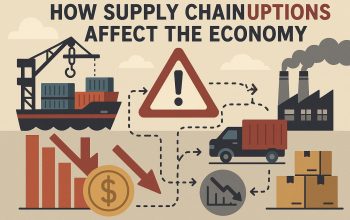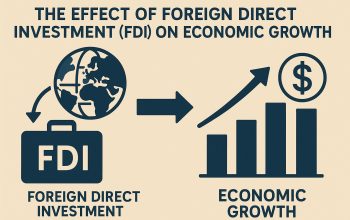The Nature of Financial Crises
Financial crises, by nature, represent tumultuous periods characterized by severe disruptions in the marketplace. These disruptions are marked by precipitous declines in asset prices alongside the insolvency of banks and other financial institutions. The ripple effects from these crises can extend across borders, affecting economies on both a localized and global scale. Historical instances such as the Great Depression of the 1930s and the Global Financial Crisis of 2008 illustrate the profound impacts these crises can have. These events serve as critical reference points, offering invaluable insights into both the catalysts that can trigger such crises and their subsequent impacts.
Triggers and Causes
The triggers of financial crises are multifaceted and often result from a confluence of factors. One primary factor is the formation of speculative bubbles, which occur when asset prices are driven to unsustainable levels due to excessive investment. When these bubbles burst, it results in sharp corrections or collapses, which can destabilize markets. A recent prominent example is the housing market bubble that contributed to the 2008 crisis. Another contributing factor is excessive borrowing or leverage. When too much debt accumulates, particularly among consumers or companies, it can become unmanageable if economic conditions take a downturn. In such scenarios, borrowers may face difficulties in fulfilling their repayment obligations, thereby leading to financial instability.
Another aspect that can exacerbate crises is regulatory failure. If oversight bodies do not have the necessary frameworks to prevent excessive risk-taking, it can create an environment where financial markets operate unchecked and present systemic risks. This lack of oversight can sometimes allow risky behavior and speculation, potentially setting the stage for a financial crisis. Financial institutions might engage in risky lending practices or create complex financial products that are poorly understood, both of which can increase systemic vulnerabilities.
Systemic Risks
The systemic risk associated with financial crises is substantial due to the interconnected nature of global financial systems. A crisis that begins in one geographical region or sector can quickly propagate across others, compounding existing economic challenges. This phenomenon is exacerbated by globalization, where economies are interlinked through various channels such as trade, investment, and capital flows. The interconnected financial systems mean that upheaval in one major economy or critical financial institution can transmit distress signals that reverberate globally. For instance, a default by a major financial institution in one country can affect the credit ratings of institutions worldwide, triggering a loss of confidence among investors and financial markets globally.
Economic Consequences
Financial crises invariably lead to substantial economic consequences, often resulting in partial or complete economic recessions. During these periods, both consumer and business spending tend to decline sharply as economic uncertainty undermines confidence. The impact is typically observed in industrial production, retail sales, housing markets, and other economic indicators, which experience noticeable contractions. Additionally, these downturns are frequently accompanied by rising unemployment as businesses cut back on hiring and workforce expansion to cope with reduced demand.
The challenges do not end with declining spending and employment. The crisis also impacts the functioning of financial markets and banks. Impaired credit markets mean new investments slow down or stop entirely, directly affecting economic growth and delaying recovery efforts. Businesses, particularly small to medium enterprises, may struggle to obtain financing for operations, hindering expansion and innovation efforts.
Social and Political Repercussions
Beyond the immediate economic ramifications, financial crises also have cascading social and political effects. Socially, they often exacerbate existing issues such as income inequality, putting further strain on middle and lower-income populations. Unemployment and job insecurity contribute to social unrest, leading to increased discontent among the population. As these social stresses accumulate, they often manifest in political changes or reforms. Governments may face significant pressure to implement policy measures aimed at economic stabilization. Political leaders may be forced into action to mitigate the impacts of the crisis or face electoral consequences.
Policy shifts post-crisis may focus on implementing more stringent regulatory measures to prevent future occurrences, protecting consumer interests and ensuring financial stability. However, these changes often take considerable time to implement and require international cooperation, given the interconnected nature of global markets. Thus, political repercussions involve a complex balancing act between maintaining stability and pursuing necessary reforms.
Responses and Mitigation
The initial responses to financial crises typically involve governments and international organizations implementing a range of economic measures designed to stabilize the economy and restore confidence. One of the primary tools used is adjusting monetary policy, often through lowering interest rates to cut borrowing costs, which encourages spending by both consumers and businesses.
Fiscal policies might also be enacted, such as bolstering government spending on infrastructure projects or other initiatives to stimulate economic activity and create jobs. These efforts aim to compensate for the reduced private sector investment and spending usually seen during a crisis.
In addition to monetary and fiscal interventions, regulatory reforms often follow financial crises to address the root causes and to strengthen the resilience of financial institutions against future shocks. Such reforms can include stricter capital requirements for banks, more comprehensive oversight of banking activities, and enhanced consumer protections.
For a broader understanding and insight into financial crises management, various research and policy institutes provide extensive reports and studies. In-depth analyses and strategic recommendations are available through renowned institutions such as the International Monetary Fund and the World Bank.
Conclusion
Financial crises represent complex economic events that can significantly reshape global economic structures. They impact markets and economic stability profoundly and illustrate the need for robust financial systems designed to withstand such shocks. Understanding the underlying causes, effects, and mitigation strategies is imperative for policymakers, financial analysts, and economists alike.
Ongoing research and active policy discussions play a critical role in not only preventing future crises but also in managing their impacts more effectively when they occur. In an interconnected world, international collaboration and comprehensive policy frameworks are essential components in promoting financial stability and economic resilience.
This article was last updated on: August 21, 2025




